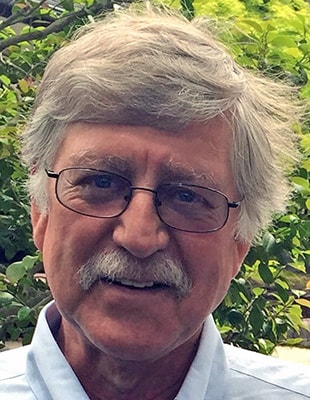Scheier Honored by American Psychological Association for Distinguished Scientific Contributions
He becomes eighth Carnegie Mellon faculty member to receive this lifetime achievement award
By Stefanie Johndrow and Shilo Rea
For groundbreaking work to understand the self-regulation of behavior, longtime Carnegie Mellon University Psychology Professor Michael Scheier has been awarded the American Psychological Association's 2018 Award for Distinguished Scientific Contributions.

Michael Scheier
The award, among the highest honors for scientific achievement by psychologists, recognizes senior scientists for distinguished theoretical or empirical contributions to basic research in psychology. The University of Miami's Charles S. Carver, who Scheier began working with when both were graduate students at the University of Texas at Austin, is also being honored with the award.
"Mike Scheier has been a tour de force in personality and health psychology for decades, making critical discoveries about how we motivate ourselves," said Michael J. Tarr, head of the Department of Psychology in the Dietrich College of Humanities and Social Sciences. "And beyond his outstanding research, he led our world-class department for a decade and continues to be an influential mentor and professor to our students and alumni. This award is most deserving."
Scheier joined CMU's faculty in 1975. For the next 40-plus years, Scheier and Carver have been trying to understand the processes that support purposive, goal-directed action and, later, effective self-management. They provided a framework that explains where goals come from, the mechanisms that underlie goal pursuit and what happens when there are difficulties attaining goals. Then, they examined different aspects of the model, most notably, the role optimism plays in overcoming challenging goals.
Scheier and Carver developed a scale to measure optimism. The Life Orientation Test (LOT-R)t has been widely adopted and used in several major studies, including one that looked at more than 70,000 nurses, showing that optimism is an important predictor of mortality over and above biomedical factors.
Other major achievements include drawing on both control theory and dynamic systems theory, to create a more comprehensive dual-mode model in which top-down feedback control processes and bottom-up dynamic self-organization processes are integrated.
The APA stated that the foundation of Scheier and Carver's work "has led to an impressive set of interrelated contributions in diverse areas such as affect, optimism, coping and health, as well as methodological contributions in the development of widely used assessment tools, such as the Life Orientation Test."
Scheier and Carver gave a talk at the APA annual meeting in August and will have a paper in the December issue of the American Psychologist on dispositional optimism and physical health.
"It is gratifying and really humbling for our work to be recognized this way," Scheier said. "Counting the student classes before and after mine at the University of Texas, four other students have received distinguished scientific contribution awards. Seven of my colleagues from the Psychology Department at CMU have also won the award. If I have been successful, it's been due in large part to the high caliber of colleagues that have surrounded me over the course of my career. They have helped set the tone and standards for what it means to do good work."
Scheier is the eighth Carnegie Mellon faculty member to receive the APA Award for Distinguished Scientific Contributions. Current Psychology professors John Anderson and Sheldon Cohen, former faculty members Robert Siegler, Susan Fiske and James McCllelland, and the late Allen Newell and Herb Simon also were recipients.
For his research, teaching and administrative excellence, CMU recently appointed Scheier the Walter van Dyke Bingham Professor of Personality and Health Psychology. A celebration is being planned for later this fall.